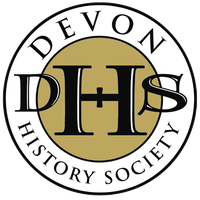Clarence, Miss Edith, Coaxdon Hall, Axminster
Edith Clarence (1876 – 1941) was born in Ceylon (Sri Lanka) in 1876. Her father Lovell Clarence had been appointed as Judge of Supreme Court of Ceylon in 1876. Edith was one of 5 children. Her mother Blanche, died in 1888. Edith lived with her father and step mother at Coaxdon Hall, Axminster during her active period as a member of the WSPU[1]. After World War I Edith moved to Gloucestershire, living at Dixton Manor, also home to Mabel Malleson (sister of suffrage activist Hope Malleson). She later lived at Detmore, Charlton Kings, Cheltenham[2] until her death in August 1941.[3]
Edith was an active member of the WSPU, arranging meetings at Axminster for the WSPU[4] and became the Honorary Secretary for the Axminster branch. In 1910 she addressed a Honiton WSPU meeting[5] and was at tea with Mrs Pankhurst at The Royal Clarence[6]
Edith became involved in Holiday Campaigns. Suffragettes on holiday took opportunities to hold outdoor meetings and rallies in areas of the country frequented by visitors during summer months. Edith enrolled on an Oxford Extension Course during the Summer of 1909. This was seen as an opportunity for ‘propaganda’ in support of votes for women and to recruit new members to the WSPU by holding a series of meetings, debates and sale of literature. Edith spoke at a number of meetings and at the end of the course she was on the platform at a joint meeting of NUWSS and WSPU held at the Corn Exchange. She was applauded for her work in organising processions and open-air meetings sacrificing many of the lectures she had planned to attend.[7]
Over the next few years, Edith’s involvement in the holiday campaigns took her to Bath, Torquay, Cornwall[8] and as far north as Glasgow and Edinburgh.[9]
In February 1912, Edith speaking at a meeting at Clifton, Bristol, commented that the Women’s Movement was the biggest forward political movement of its kind because it was an ‘inevitable development’ in accord with the improvement in the condition of women throughout the world. When women have a say in making the laws of sweated labour, poor housing and infant mortality will improve[10].
Edith’s activities inevitably resulted in a brush with the law and on 9 March she appeared at Bow street Magistrates charged with insulting behaviour and obstruction. She was ordered to find sureties or 1 month imprisonment.[11]
Edith gave support to the Church League of Women Suffrage over the question of ordination of women, but felt that women’s suffrage needed to take priority. This was expressed in a letter to Ursula Roberts, as a member of the League, in 1913.[12]
The Church Congress of 1913 had the position of women on its programme and was expected to have record numbers attending. Members of the WSPU saw this as an opportunity to push forward their own position through a series of outside meetings to give visitors a chance to hear their side of the debate. Edith Clarence was one of their advertised speakers.[13]
Edith spoke out in defence of Militancy in response to an article on the National Union and Militancy that appeared in The Common Cause in May 1913. She took issue with the suggestion that militancy had introduced ‘elements of revenge’ ‘contempt for others’ and ‘deafness to honest and considered criticism.’ Edith’s response was that if these elements existed within the suffrage movement, it was not brought in by militants but by the Liberal Government. The Government had met women’s demands for peace and justice, with contempt and unreason and by their lack of honesty had helped to create bitterness.[14]
After the war, Edith continued to be involved in politics becoming Chairman of the Cheltenham Labour Party . She died in her home in Charlton Kings, Cheltenham on 30 August 1941.
Entry created by Rachel Jasinska, November 2018
[1] Ancestry.com Census 1901 and 1911
[2] Ancestry.com electoral Registers
[3] Ancestry.com Births, Marriages and Deaths
[4] Western Times 13 Dec 1909
[5] Devon and Exeter Gazette 24 Jan 1910
[6] Western Times 29 Oct 1910
[7] Votes for Women 27 August 1909
[8] Votes for Women 1 September 1911
[9] Votes for Women 19 & 26 July 1912
[10] Western Daily Press 20 February 2012
[11] Findmypast.co.uk Suffragette Collection
[12] ‘Edith Clarence to [Mrs Roberts], c.1913. Autograph Letter Collection: Women in the Church. Women’s Library Archives. GB 106 9/06/006’ on the Archives Hub website, [https://archiveshub.jisc.ac.uk/data/gb106-9/06/9/06/006] Accessed 1 Dec 2018.
[13] Suffragette 26 September 1913
[14] Common Cause 9 May 1913
